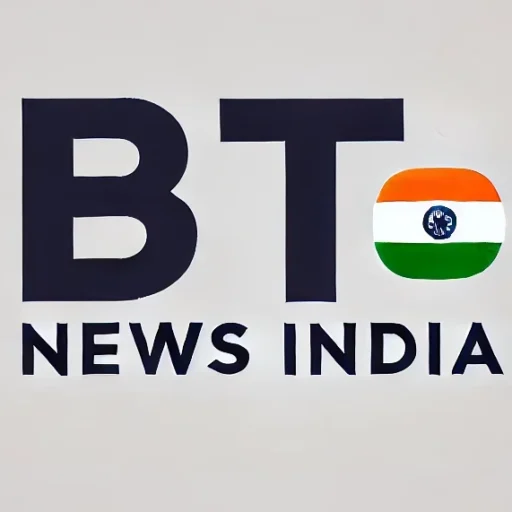Aadhaar, Voter ID Not Enough to Prove Citizenship, as Rahul Gandhi’s Campaign Stirs Controversy
Published on: September 01, 2025
By: BTNI
Location: New Delhi, India
A recent case has reignited the contentious debate over voter list revisions in India, with the removal of names from electoral rolls raising questions about citizenship and identity verification. A man, whose father was born in Bangladesh but who claims he and his siblings were born in India, found his name struck off the voter list despite possessing an Aadhaar card and voter ID. The authorities demanded additional residence proof, which he was unable to provide, leading to his exclusion from the electoral roll. This incident has sparked a broader conversation about the adequacy of identity documents and the process of voter list revisions, with Congress leader Rahul Gandhi at the forefront of the political storm.
The Bombay High Court recently ruled that documents like Aadhaar, PAN, or voter IDs do not inherently prove Indian citizenship, emphasizing that claims of nationality must be strictly evaluated under the Citizenship Act, 1955. In a case involving an alleged Bangladeshi national, the court rejected a bail plea, citing forged identity documents and national security concerns. The ruling underscored that Aadhaar and voter IDs are primarily for identification and service access, not conclusive evidence of citizenship. This legal stance has fueled the Election Commission’s ongoing Special Intensive Revision (SIR) of voter lists, particularly in states like Bihar, aimed at weeding out non-citizens from electoral rolls.
The man at the center of the controversy stated, “My father was from Bangladesh, but my siblings and I were born here. We’ve been living in India our whole lives. I provided my voter ID and Aadhaar, but they asked for residence proof, which I couldn’t get.” His removal from the voter list has drawn attention to the challenges faced by individuals caught in the crosshairs of stringent verification processes. Critics argue that the lack of clear citizenship documentation requirements in voter registration forms, such as Form 6, has allowed non-citizens to enter voter lists over the years, a loophole now under scrutiny.
The Election Commission’s Form 6, used for voter registration, requires only a declaration of age and residence, not explicit proof of citizenship. A former Chief Election Commissioner noted, “When Form 6 was introduced in 1952, no one foresaw such a large-scale inflow of illegal immigrants.” This lax verification process has led to concerns about non-citizens voting, with estimates from 2016 suggesting India hosts around 20 million illegal Bangladeshi immigrants. The ongoing SIR, which involves door-to-door verification, aims to address these concerns but has faced backlash for potentially disenfranchising legitimate voters, especially from marginalized communities.
Enter Rahul Gandhi, whose vocal campaign against the voter list revisions has been labeled by some as “nautanki” (drama). Gandhi and the Congress-led INDIA alliance have criticized the Election Commission, alleging that the SIR process is a deliberate attempt to exclude poor and marginalized voters. In a high-profile presentation titled “Vote Chori,” Gandhi claimed that unaccounted voters and discrepancies in voter lists, including sudden additions and deletions, point to electoral fraud. He highlighted that 3.9 million new voters were added in just five months before recent elections, raising suspicions of manipulation. Gandhi has called for greater transparency and suggested that linking Aadhaar to voter IDs could reduce duplicate entries, though he acknowledged challenges for those without Aadhaar access.
The Supreme Court, in a recent observation, urged the Election Commission to consider accepting Aadhaar, voter IDs, and ration cards as valid identity proofs during the SIR process, though it clarified this was not mandatory. The court noted that Aadhaar is primarily an identity document, not proof of citizenship, and its exclusion from the list of acceptable documents for voter verification has sparked debate. The Election Commission defended its stance, arguing that Aadhaar’s purpose is limited to identity verification and cannot confirm citizenship or domicile.
Political reactions have been polarized. While Gandhi’s supporters view his activism as a defense of democratic rights, critics, including some BJP leaders, accuse him of sensationalizing the issue for political gain. They argue that the SIR is essential to ensure only Indian citizens vote, pointing to cases like the one in Thane, where digital evidence linked an individual to Bangladesh despite possession of Indian identity documents. The opposition’s protests, particularly in Bihar, have led to accusations of a “conspiracy” to favor the ruling alliance by selectively removing voters.
Also read- https://www.btnewsindia.com/chamber-of-commerce-submits-memorandum-over-₹2-crore-fraud-against-local-trader/ https://www.btnewsindia.com/natures-alarm-surge-of-wood-logs-in-ravi-river-signals-rampant-timber-mafia-activity-in-himachal-pradesh/
As the debate rages on, the man whose name was removed from the voter list remains in limbo, emblematic of a larger struggle. The Election Commission’s efforts to clean up voter rolls are seen as a necessary step by some, but others warn that without clear guidelines and accessible documentation processes, genuine citizens risk being unfairly excluded. With elections looming in Bihar and other states, the controversy over voter list revisions is far from over, and Rahul Gandhi’s “nautanki” continues to keep the issue in the spotlight.
The clash between electoral integrity and voter inclusion has taken center stage, with no easy resolution in sight. As the Election Commission navigates the complex terrain of citizenship verification, the nation watches closely, weighing the balance between safeguarding democracy and ensuring every eligible voice is heard.




